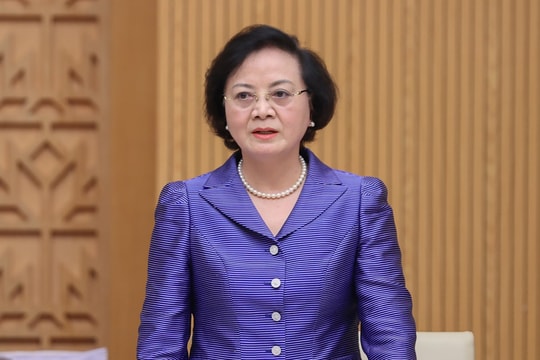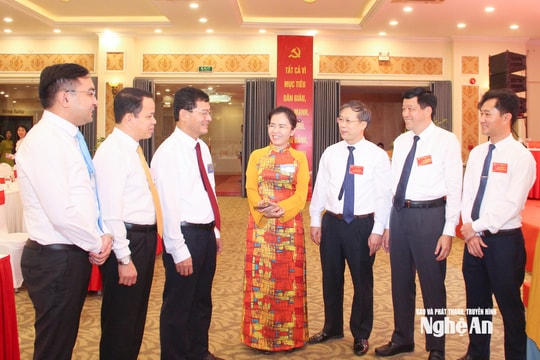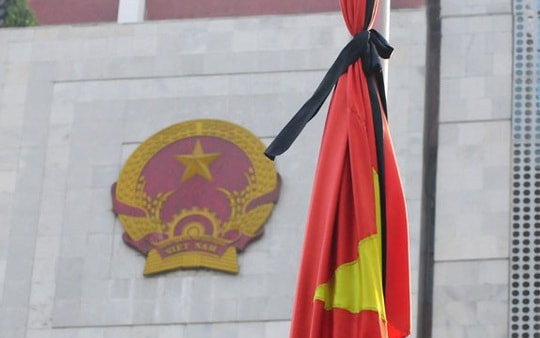Regardless of salary, many officials and civil servants are still rich.
TNon-wage income is increasingly high, complex and diverse. Income from many forms of disguised subsidies is developing.
According to Mr. Dang Nhu Loi - former Deputy Chairman of the National Assembly's Committee on Social Affairs, the mechanism for creating resources to implement the Salary Reform and Salary Management Project was proposed 23 years ago, basically unchanged and did not create any major changes.
“Salary has almost no impact on improving the quality of the staff receiving salaries from the budget; it is not closely linked to administrative reform. Every year, the state budget wastes tens of thousands of billions of VND on salaries, but the quality of the apparatus is not improved, it remains stagnant and troublesome,” said Mr. Dang Nhu Loi.
 |
| Low salary but many people still want to work in government agencies |
The reality is that the actual salary (actually received) is increasingly average, patchy, breaking the general salary relationship. The more we socialize the salary fund from the budget, the more it increases, the heavier the beneficiary's contribution is without much effectiveness.
“Income outside of salary is increasing, becoming more complex and diverse. Income from many forms of disguised subsidies is developing. A number of cadres, civil servants and public employees are becoming rich, not knowing, not living and not caring much about their salary,” Mr. Dang Nhu Loi stated the reality.
Currently, employees in enterprises know their monthly salaries so that they can strive to improve their professional qualifications, skills, and work skills and increase their salaries, while cadres, civil servants, public employees, and armed forces who receive salaries only know their salary levels and allowances, but do not know specifically how much their salaries are. When the time comes, cadres, civil servants, and public employees, good or bad, are all ranked and receive new salaries. This method is costly to the state budget, but the effect of salary reform is not much.
Mr. Dang Nhu Loi admitted that salary is a complicated issue, going through many stages makes it more complicated and difficult to understand, but the understanding from the drafting agency, participating in the drafting to the decision-making level is still too limited, the awareness is not complete. Meanwhile, the level deciding on salary policy has not focused on investing effort, time and material to research, listen, and understand the basic contents of salary policy, so most decisions are still subjective, experiential and heavily political.
Which direction to reform wages?
Mr. Dang Nhu Loi said that, first of all, it is necessary to clearly define that the salary of cadres, civil servants, public employees (CB,CC,VC), and armed forces (LLVT) is different from the salary of workers in production, business, and services. It is necessary to ensure that CB,CC,VC, and armed forces can live with an average salary at least equal to the average salary of workers in enterprises.
And it is necessary to focus on research, change mechanisms and policies with breakthrough and strong impact to create resources to implement salary reform, especially in the public service sector, and implement the socialization of public service on the basis of economic accounting (not business accounting, except in specific cases).
The goal of this reform is to form a synchronous, scientific, anti-egalitarian and leveling salary system; ensure reasonable salary correlation; fundamentally reduce and eventually eliminate allowances for meetings and conferences; lunch money and other similar income.
Along with that, it is necessary to fundamentally change the current salary system of civil servants, public employees, civil servants, and armed forces; completely separate it from the salary system of the production and business sector, from the pension system, social insurance benefits, and incentives for people with revolutionary contributions.
Based on the organization, nature and working conditions to build a salary regime, salary payment form, salary management mechanism suitable for each different field and industry. Salary is built, arranged and paid according to work and position. The basic salary is specifically regulated for work, position and stable for a number of years.Eliminate regulations on salary by coefficient and position allowance.
To truly reform the wage policy, according to Mr. Dang Nhu Loi, it is necessary to reform the social insurance policy, health insurance policy, and policy for meritorious people synchronously. Completely eliminate the subsidy regime; Review the transportation regime and other subsidy regimes to handle them appropriately and effectively. Separate the wage policy for the self-financing sector from the budget-funded sector. Give full authority to decide on wages for the self-financing sector to the organization representing the collective of workers and employers.
The State only focuses on solving the salary problem in the budget-spent sector. The State announces the national minimum wage to ensure the general minimum living standard of the whole society. The average salary of officials and civil servants must be equal to or higher than the average salary of workers in enterprises. And the key is that "Salary reform must be associated with the quality of officials, civil servants and public employees" - Mr. Loi said./.
According to VOV






.jpg)

